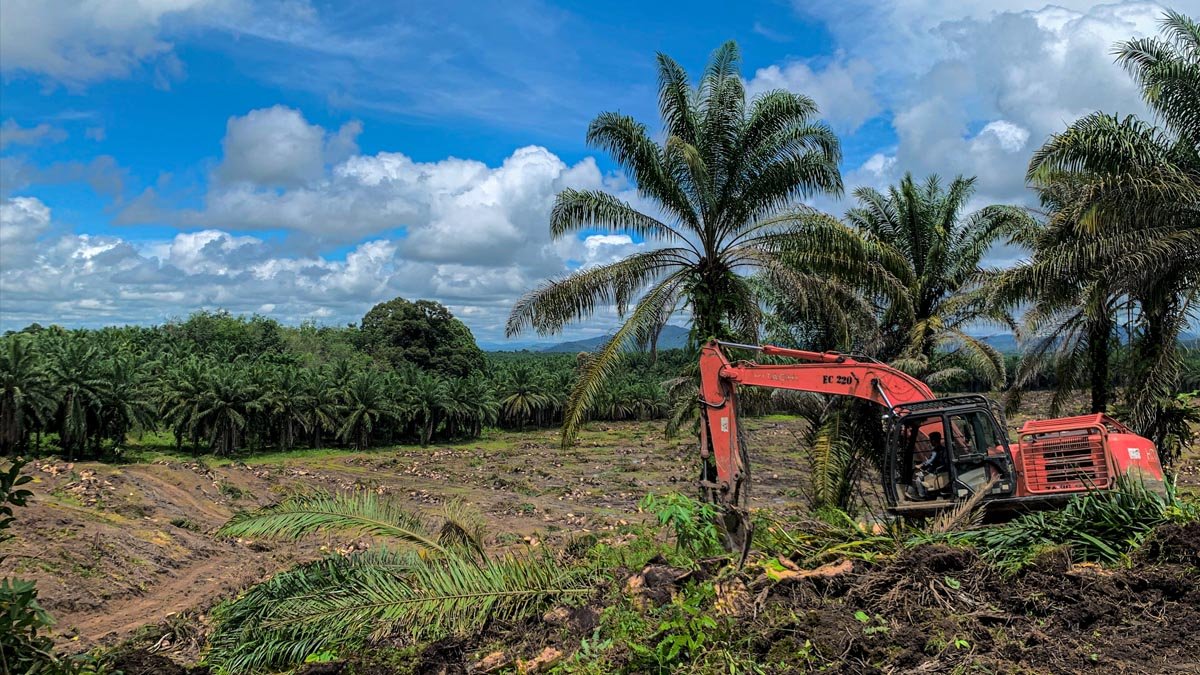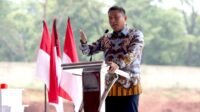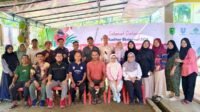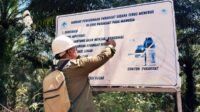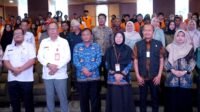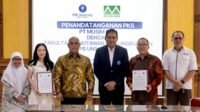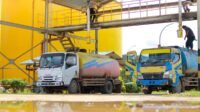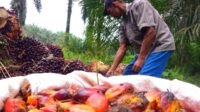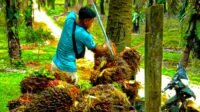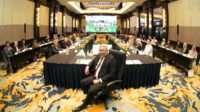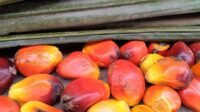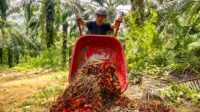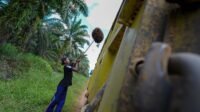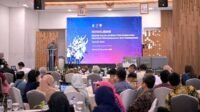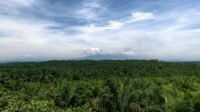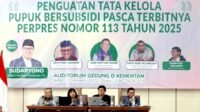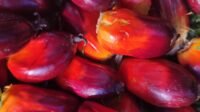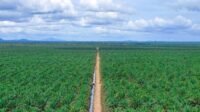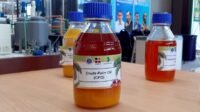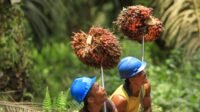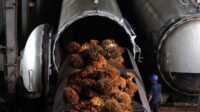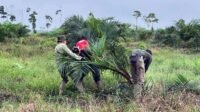PALMOILMAGAZINE, BOGOR — IPB University, in collaboration with international partners, has introduced a groundbreaking sustainable farming model called “Koronisasi”, designed to optimize replanting areas in oil palm plantations through smart intercropping of oil palm, koro beans, and IPB 9G rice.
Developed under the “SustainPalm: Sustainable Palm Oil” initiative, the model is the result of collaboration among IPB University, Wageningen University & Research (WUR) of the Netherlands, Lambung Mangkurat University (ULM), and PT Citra Putra Kebun Asri (CPKA). The goal is to support environmentally friendly palm oil production while contributing to the achievement of the Sustainable Development Goals (SDGs).
The first trials were conducted in Jorong Village, Tanah Laut Regency, South Kalimantan — with promising results. The oil palm–koro intercropping system launched in February 2023 produced koro bean yields of 2.5–3 tons per hectare with minimal fertilizer use.
In the next phase, oil palm–rice trials carried out from April to July 2025 showed that the IPB 9G rice variety produced around 3 tons per hectare — with expectations of even higher yields with better pest control, particularly against rice bug infestations.
Professor Sudrajat of IPB University explained that the term “koronisasi” reflects the central role of koro beans in the model. Their ability to naturally improve soil structure and fix nitrogen makes them an ideal predecessor to rice cultivation.
“This approach not only enhances soil fertility but also offers economic benefits, as koro beans are a high-protein source for feed and food,” Prof. Sudrajat told Palmoilmagazine.com (Wednesday, 30/7/2025).
Local farmers such as H. Sariman and Sari welcomed the initiative, noting that IPB 9G rice grew well on land previously used for palm replanting. They plan to expand planting during the upcoming rainy season, reflecting strong confidence in the model’s potential.
PT CPKA Manager, Ir. Eko, also expressed enthusiasm over the trial’s success, revealing plans to scale up planting to 10 hectares. This, he said, could help reduce the company’s internal food costs by up to 25%.
Backed by strong multi-stakeholder support, Prof. Sudrajat hopes that the koronisasi model can become an effective solution in promoting the long-term sustainability of Indonesia’s palm oil industry. Through a pentahelix approach engaging various sectors, the program is expected to improve farmer welfare and ensure more efficient use of plantation land. (P2)

